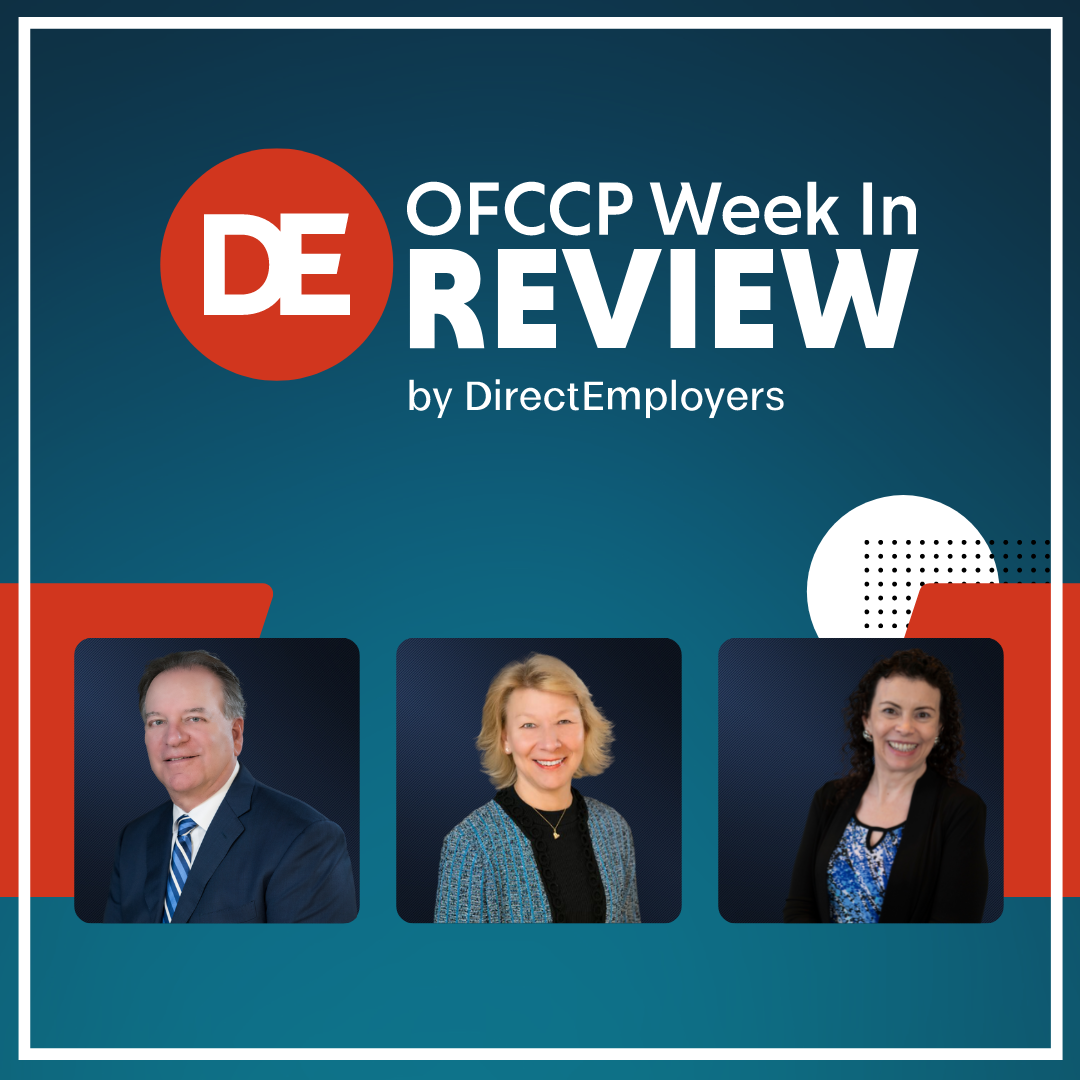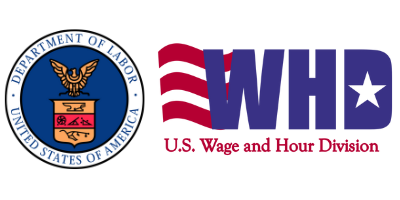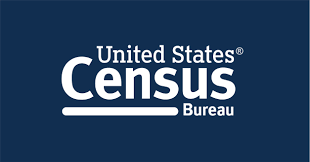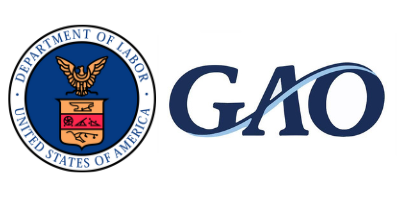
- Second USDOL WHD PUMP Act Enforcement Action Assessed Penalties Against Employer for Alleged Failure to Provide Pumping Privacy
- U.S. Census Bureau Proposed to Test Questions on Sexual Orientation & Gender Identity for ACS
- U.S. EEOC Finalized Strategic Enforcement Plan Focuses on Unserved Groups, Employment Agreements/Waivers, AI, & Other Emerging Issues
- In Brief
- Looking Ahead: Upcoming Date Reminders
Monday, September 18, 2023: Second USDOL WHD PUMP Act Enforcement Action Assessed Penalties Against Employer for Alleged Failure to Provide Pumping Privacy

“The agency learned that when an employee at the Palm Coast resort asked for a private place to pump breast milk, supervisors took nearly four months to identify a space, eventually offering a manager’s office. The office lacked privacy, as the employee learned when another worker entered the room while the mother was attempting to pump milk. In another incident, the employer submitted a written counseling to the employee for leaving workplace property without permission after the worker advised that she needed to leave to express milk for her child.”
As a result of these alleged PUMP Act violations, combined with the WHD’s conclusion that the employer also violated child labor provisions of the Fair Labor Standards Act (“FLSA”), the agency assessed the employer $6,810 in civil money penalties.
Reminder – What is the PUMP Act?
As we reported in early January, the PUMP Act amended the FLSA to require employers to provide breastfeeding accommodations in the workplace. Specifically, it requires a private location other than a bathroom and the necessary, reasonable break time for one year following the birth of a child. It expands on a 2010 amendment to the FLSA, which requires employers to provide these accommodations to non-exempt nursing employees. The new law expanded these rights to salaried employees. Most of the provisions of the PUMP Act took effect on its enactment date. However, certain remedy provisions did not take effect until April 27, 2023.
Jumping right on its new enforcement obligations, the WHD announced its first PUMP Act enforcement action in May (see our story here). In that case, the WHD settled with a corporate-owned location of Whataburger Restaurant LLC allegations that the employer failed to provide reasonable break time for an employee to express breast milk. Moreover, WHD investigators determined that, when the employee left the premises of the Lubbock, Texas restaurant to express milk, the employer terminated her. Monday’s announcement appears to be the second enforcement action announced by the WHD since the PUMP Act took effect earlier this year.
How Does the PUMP Act Differ from the Pregnant Workers Fairness Act?
Employers should note that the PUMP Act is not to be confused with the Pregnant Workers Fairness Act (“PWFA”). The PWFA requires a covered entity to provide reasonable accommodations to a qualified employee’s or applicant’s known limitation related to, affected by, or arising out of pregnancy, childbirth, or related medical conditions, unless the accommodation will cause an undue hardship on the operation of the business of the covered entity.
Although both statutes were enacted on December 29, 2022, as part of the bipartisan FY 2023 Budget legislation (H.R. 2617), the PWFA did not go into effect until June 27, 2023. Congress designated the U.S. Equal Employment Opportunity Commission (“EEOC”) as the enforcement agency for the PWFA. In August, the EEOC published its Notice of Proposed Rulemaking (“NPRM”) on regulations to implement the PWFA. Comments on the proposal are due Tuesday, October 10, 2023, and you can submit them here. (For more information on this NPRM, see our story here). Thus far, the public has submitted around 39,000 comments on the proposal.
To assist employers to understand these new compliance obligations, the WHD has a PUMP Act landing webpage and the EEOC has a PWFA landing webpage. These landing pages contain posters and other guidance tools.
Enforcement MOU Outlines Cooperation in Enforcement of These Related Laws
Earlier this month, the WHD and the EEOC issued separate announcements stating that they signed a Memorandum of Understanding (“MOU”) to enhance and maximize the enforcement of federal laws and regulations. This MOU outlines procedures the two agencies will follow in working together to address the need for information sharing, joint investigations, training, and outreach. Both announcements noted that the agencies jointly presented several events to raise awareness of the PUMP Act and the PWFA and will partner on future engagements as part of the new agreement.
Tuesday, September 19, 2023: U.S. Census Bureau Proposed to Test Questions on Sexual Orientation & Gender Identity for ACS

The ACS is an ongoing monthly survey that collects detailed housing and socioeconomic data. This Bureau collects this data via self-response modes (internet and paper) as well as interviewer-administered modes via telephone and in person. Resulting tabulations from these data collections are provided yearly. The ACS allows the Census Bureau to provide timely and relevant housing and socioeconomic statistics, even for low levels of geography. As Week in Review readers well know, federal contractors use the Census Bureau’s ACS data to calculate the availability of minorities and women for their regulatory-mandated written Affirmative Action Programs (AAPs).
Proxy Reporting
Of specific interest to the Bureau is how the questions will perform when completed by proxy respondents. In the ACS, one person at an address typically answers questions about everyone living there. When one person answers a survey about others, we call this “proxy reporting.” Currently, SOGI questions are not asked on any federal surveys that use proxy reporting. The test will build on existing qualitative research conducted throughout the federal government and private sector, including work by the Federal Interagency Working Group on Measuring SOGI (which ran from 2015 to 2016), the Measuring SOGI Research Group as part of the Federal Committee on Statistical Methodology, and the National Academies of Sciences, Engineering, and Medicine.
Two-Step Question Proposed
The Census Bureau proposed to test a two-step gender identity question: first asking about sex assigned at birth and then, only of people who are 15 and older, asking about current gender. These questions will replace the existing question on sex. The Bureau would also like to add a nonbinary option. The Bureau would also ask a verification question for anyone whose answers to the ‘sex assigned at birth’ question and the ‘current gender’ question do not match. Further, both questions will allow for a write-in response.
Follow-Up Re-Interview to Measure Reliability
In addition, the Bureau proposes a follow-up content re-interview. A subset of the ACS questions will be re-asked in the re-interview to measure response reliability. For half of the reinterview sample, the Bureau will re-interview the sample respondent as the original interview, for the other half the Bureau will reinterview another adult member of the household. This will allow the Bureau to compare response reliability for proxy vs. self-responses. The agency will also compare the reliability of the SOGI questions to other questions in the ACS.
Additional Background
Tuesday’s Census Bureau notice is not the first time the federal government has sought public input on SOGI questions. We reported in August 2022 that the White House Office of Science and Technology Policy (“OSTP”) sought public input on how the federal Government should collect SOGI data. Moreover, we reported in June 2022 that President Biden issued Executive Order 14075 (“E.O.”) titled, Advancing Equality for Lesbian, Gay, Bisexual, Transgender, Queer, and Intersex Individuals. Section 11 of E.O. 14075 addresses federal data collection of sexual orientation, gender identity, and sex characteristics data. It instructs the OSTP’s Interagency Working Group on Equitable Data to establish a subcommittee on SOGI data to coordinate with agencies to strengthen the federal Government’s collection of SOGI data. The subcommittee is collaborating with the Director of the OMB to develop and release a Federal Evidence Agenda on LGBTQI+ Equity. That subcommittee is also part of the National Science and Technology Council Subcommittee on Equitable Data.
Thursday, September 21, 2023: U.S. EEOC Finalized Strategic Enforcement Plan Focuses on Unserved Groups, Employment Agreements/Waivers, AI, & Other Emerging Issues
Focus on Systemic Discrimination Also Continues

The five key takeaways identified in the Executive Summary (pages 2-3 of the pdf version) are that the new SEP:
- Expands the vulnerable and underserved worker priority (pages 6-7) to include additional categories of workers who may be unaware of their rights under equal employment opportunity laws, may be reluctant or unable to exercise their legally protected rights, or have historically been underserved by federal employment discrimination protections. This includes people with intellectual and developmental disabilities; workers facing mental health-related disabilities; individuals with arrest or conviction records; LGBTQI+ individuals; temporary workers; older workers; individuals employed in low-wage jobs, including teenage workers; and persons with limited literacy or English;
- Refines the “Eliminating Barriers in Recruitment and Hiring” priority (pages 5-6) to include addressing policies and practices that limit access to on-the-job training, pre-apprenticeship or apprenticeship programs, temp-to-hire positions, internships, or other job training or advancement opportunities based on protected status;
- Recognizes employers’ increasing use of technology (pages 5 and 7), including artificial intelligence (“AI”) or machine learning, to target job advertisements, recruit applicants, and make or assist in hiring and other employment decisions, practices, or policies;
- Updates the emerging and developing issues priority (pages 7-8) to include protecting workers affected by pregnancy, childbirth, or related medical conditions, including under the Pregnant Workers Fairness Act; employment discrimination associated with the long-term effects of the COVID-19 pandemic, including Long COVID; and technology-related employment discrimination; and
- Preserves access to the legal system (page 8) by focusing on overly broad waivers, releases, non-disclosure agreements, or non-disparagement agreements.
The new SEP also “commits the EEOC to supporting employer efforts to proactively identify and address barriers to equal employment opportunity, cultivate a diverse pool of qualified workers[,] and foster inclusive workplaces,” the agency’s statement noted.
How We Got Here
During August and September 2022, the EEOC hosted three listening sessions to receive public input on what it should include in its draft SEP. At the third and final listening session, the Commission voted unanimously to publish its draft SEP in the Federal Register and for public feedback. The agency did so in January 2023. The public comment period on the draft SEP closed on February 9, 2023, with 52 comments submitted. The EEOC received additional public comments through a dedicated email box.
Additional background on the SEP is available here.
SEP Not to Be Confused with Separate Strategic Plan Document
The EEOC also publishes a Strategic Plan (“SP”), which is a separate document different from the SEP. The EEOC’s SP provides a framework for the EEOC’s strategic application of its enforcement activities. The SP directs the agency’s work and lays the foundation for the development of more detailed annual plans, budgets, and related program performance information in the future.
Last month, the EEOC published its finalized SP for Fiscal Years 2022-2026. We reported that the new SP blurs the lines between the EEOC and OFCCP as the EEOC now focuses on systemic discrimination.
The new SEP released on Thursday also illustrates the EEOC’s focus on systemic discrimination. On page 4, the Commission “reaffirms its commitment to a nationwide, strategic, and coordinated systemic program as one of the EEOC’s top priorities.” Preventing and remedying systemic harassment continues to be a top subject matter priority (page 9). The agency further discusses its Systemic Program on pages 10 and 12.
In Brief
Thursday, September 21, 2023: GAO Opined That Su Is Lawfully Serving as Acting Labor Secretary
Vacancies Act Time Bar Does Not Apply

The Vacancies Act is the exclusive means for an acting official to serve in a vacant Executive Branch position that requires presidential appointment and Senate confirmation unless another statutory provision expressly designates an acting officer or authorizes the President, a court, or the head of an executive department to make a designation, GC Perez explained. Section 552 is such a provision. It provides that, if the Secretary of Labor resigns, the Deputy Secretary of Labor shall perform the duties of the Secretary until a successor is appointed. On March 11, 2023, the prior Secretary of Labor, Martin J. Walsh, resigned, and the Deputy Secretary of Labor, Julie A. Su, assumed the role of Acting Secretary of Labor pursuant to Section 552, not the Vacancies Act. Therefore, the Vacancies Act’s time limitations on acting service do not apply to the Acting Secretary’s service, GC Perez concluded.
In July, it became apparent that there were/are not enough Senate votes to confirm the President’s nomination of Ms. Su for the position of Secretary of Labor (see our story here). Earlier that month, House Committee on Education and the Workforce (“EW Committee”) Chair Virginia Foxx (R-NC) sought a formal opinion from the GAO as to how long Ms. Su may legally serve as Acting Secretary of Labor. Our story here discussed the provisions of Section 552 and the Vacancies Act and Chair Foxx’s request for clarification as to which statute prevails. The GAO ruling confirmed the Biden Administration’s position that Section 552 is the controlling law in this situation. See our story here for more details on the conflict between the White House and Republican legislators on this point.
Looking Ahead:
Upcoming Date Reminders
There is one NEW calendar entry below.
June 2023: U.S. DOL WHD’s current target date (now overdue) to publish its Final Rule on Nondisplacement of Qualified Workers Under Service Contracts (RIN: 1235-AA42)
June 2023: U.S. OSHA’s current target date (now overdue) to publish its Final Rule on Occupational Exposure to COVID-19 in Healthcare Settings (RIN: 1218-AD36)
August 2023: U.S. DOL WHD’s (now overdue) target date for its Final Rule on Employee or Independent Contractor Classification Under the Fair Labor Standards Act (RIN: 1235-AA43)
August 2023: U.S. NLRB’s (now overdue) target date for its Final Rule on Standard for Determining Joint-Employer Status (under the NLRA) (RIN: 3142-AA21)
August 2023: U.S. NLRB’s (now overdue) target date for its Final Election Protection Rule (RIN: 3142-AA22)
August 2023: U.S. DOL’s OASAM’s (now overdue) target date to publish Proposed Rule on “Revision of the Regulations Implementing Section 188 of the Workforce Innovation and Opportunity Act (WIOA) to Clarify Nondiscrimination and Equal Opportunity Requirements and Obligations Related to Sex” (RIN: 1291-AA44)
THIS WEEK: September 30, 2023: 2023 VETS-4212 filing deadline – the reporting cycle began on Tuesday, August 1, 2022
October 2, 2023: Deadline for comments on DHS/ICE’s proposed pilot procedure program & information collection for non-E-Verify participants as to remote I-9 Form document inspections
October 10, 2023: Comments due on EEOC’s Proposed Regulations to Implement the Pregnant Workers Fairness Act
October 10, 2023: Comments due on the EEOC’s proposal to extend – without change – its ADEA/OWBPA third-party waiver & disclosure requirements
October 23, 2023: US DOL’s WHD Final Rule updating Davis-Bacon & Related Acts regulations takes effect
October 30, 2023: Deadline for comments on OSHA’s union-friendly proposal to revise its Worker Walkaround Representative Designation Process
October 31, 2023: Opening Date for EEO-1 Survey Component 1 Data Collection
November 7, 2023: Comments due on U.S. DOL WHD’s proposal to revise its FLSA regulations on the exemptions from minimum wage and overtime pay requirements for executive, administrative, & professional employees
NEW November 20, 2023: Deadline for comments on the Census Bureau’s Proposal to Test Questions on Sexual Orientation & Gender Identity for the American Community Survey
December 5, 2023: Submission deadline for EEO-1 Survey Component 1 Data Collection
December 26, 2023: NLRB’s Direct Final Rule revising its procedures governing representation elections takes effect
December 29, 2023: Statutory deadline for EEOC regulations to enforce the Pregnant Workers Fairness Act
December 2023: OFCCP’s current target date for its Notice of Proposed Rulemaking to “Modernize” Supply & Service Contractor Regulations (RIN: 1250-AA13)
December 2023: OFCCP’s current target date for its Final Rule on “Technical Amendments” to Update Jurisdictional Thresholds & Remove Gender Assumptive Pronouns (RIN: 1250-AA16)
January 1, 2024: U.S. DOL OSHA’s Final Rule Requiring Covered High-Hazard Industry Employers to Electronically Submit Injury & Illness Records Takes Effect
April 3 – April 5, 2024: DEAMcon24 New Orleans
June 2024: OFCCP’s current target date for its Notice of Proposed Rulemaking to Require Reporting of Subcontractors (RIN: 1250-AA15)
THIS COLUMN IS MEANT TO ASSIST IN A GENERAL UNDERSTANDING OF THE CURRENT LAW AND PRACTICE RELATING TO OFCCP. IT IS NOT TO BE REGARDED AS LEGAL ADVICE. COMPANIES OR INDIVIDUALS WITH PARTICULAR QUESTIONS SHOULD SEEK ADVICE OF COUNSEL.
SUBSCRIBE.
Compliance Alerts
Compliance Tips
Week In Review (WIR)
Subscribe to receive alerts, news and updates on all things related to OFCCP compliance as it applies to federal contractors.
OFCCP Compliance Text Alerts
Get OFCCP compliance alerts on your cell phone. Text the word compliance to 55678 and confirm your subscription. Provider message and data rates may apply.

